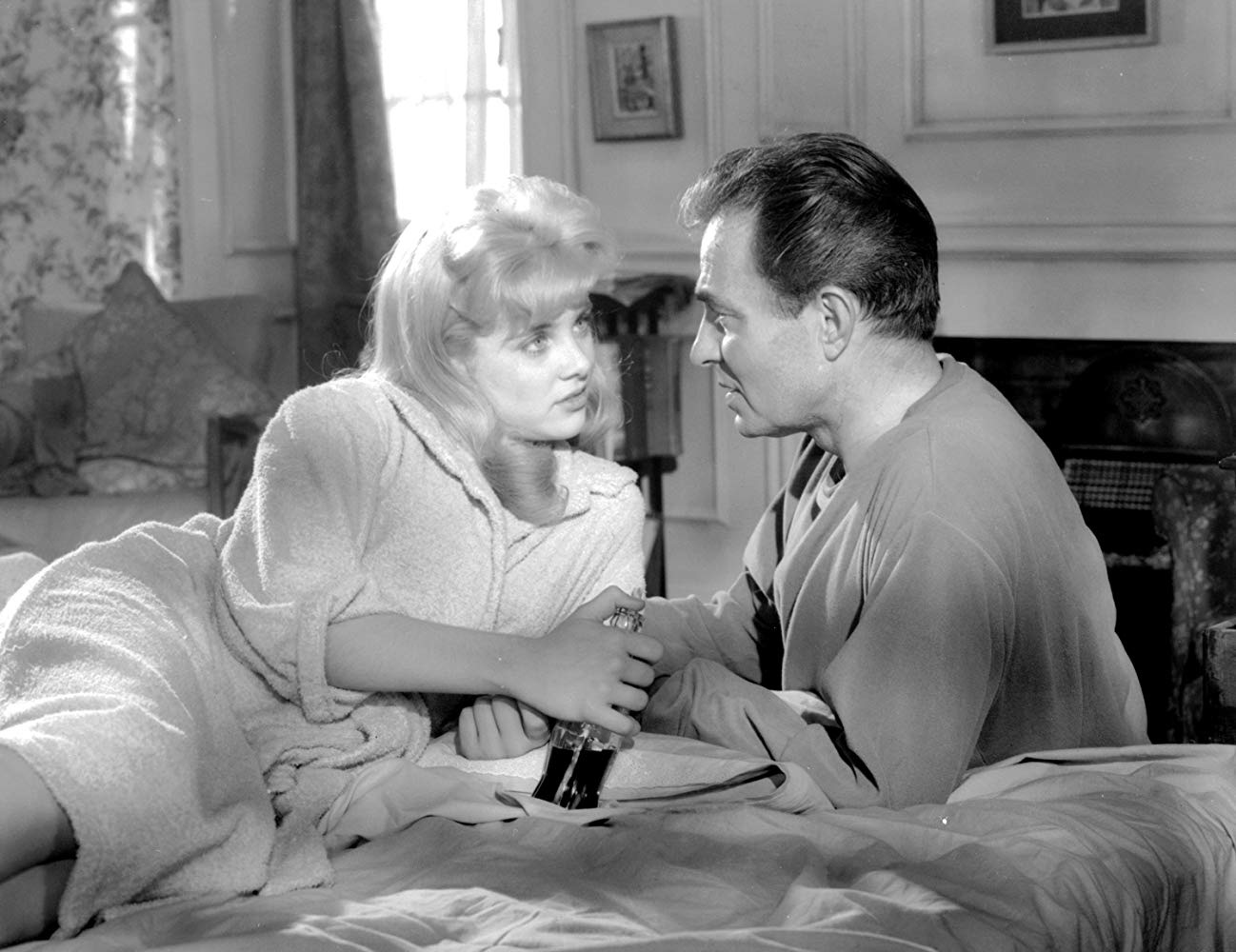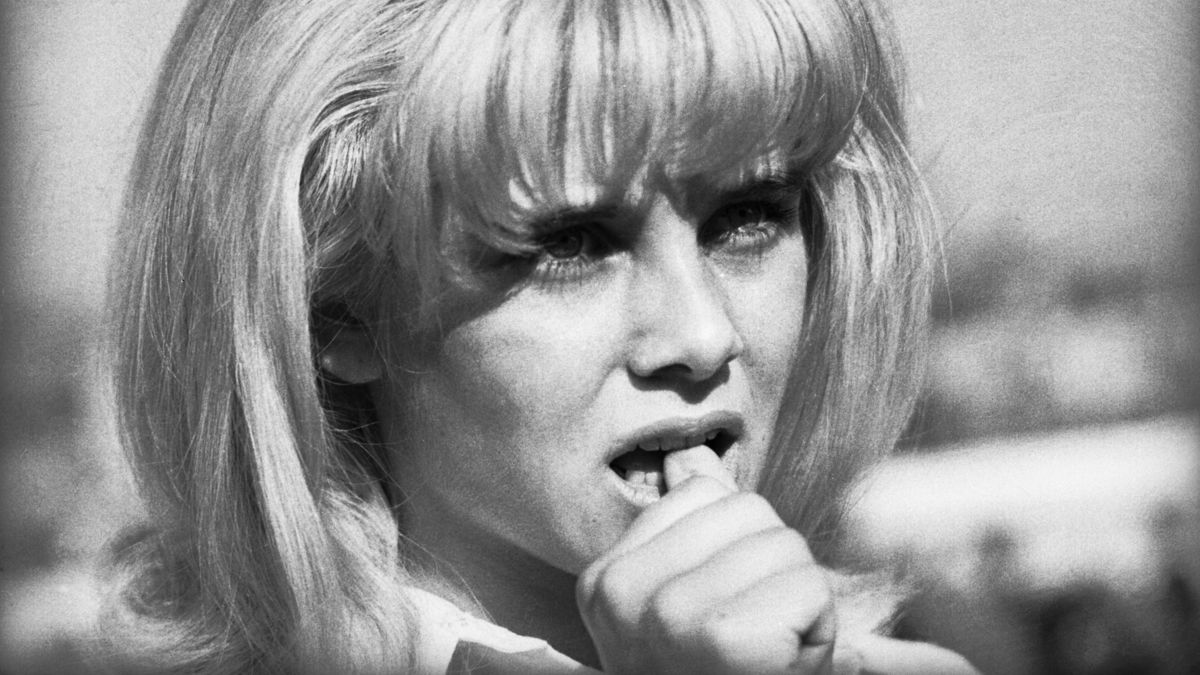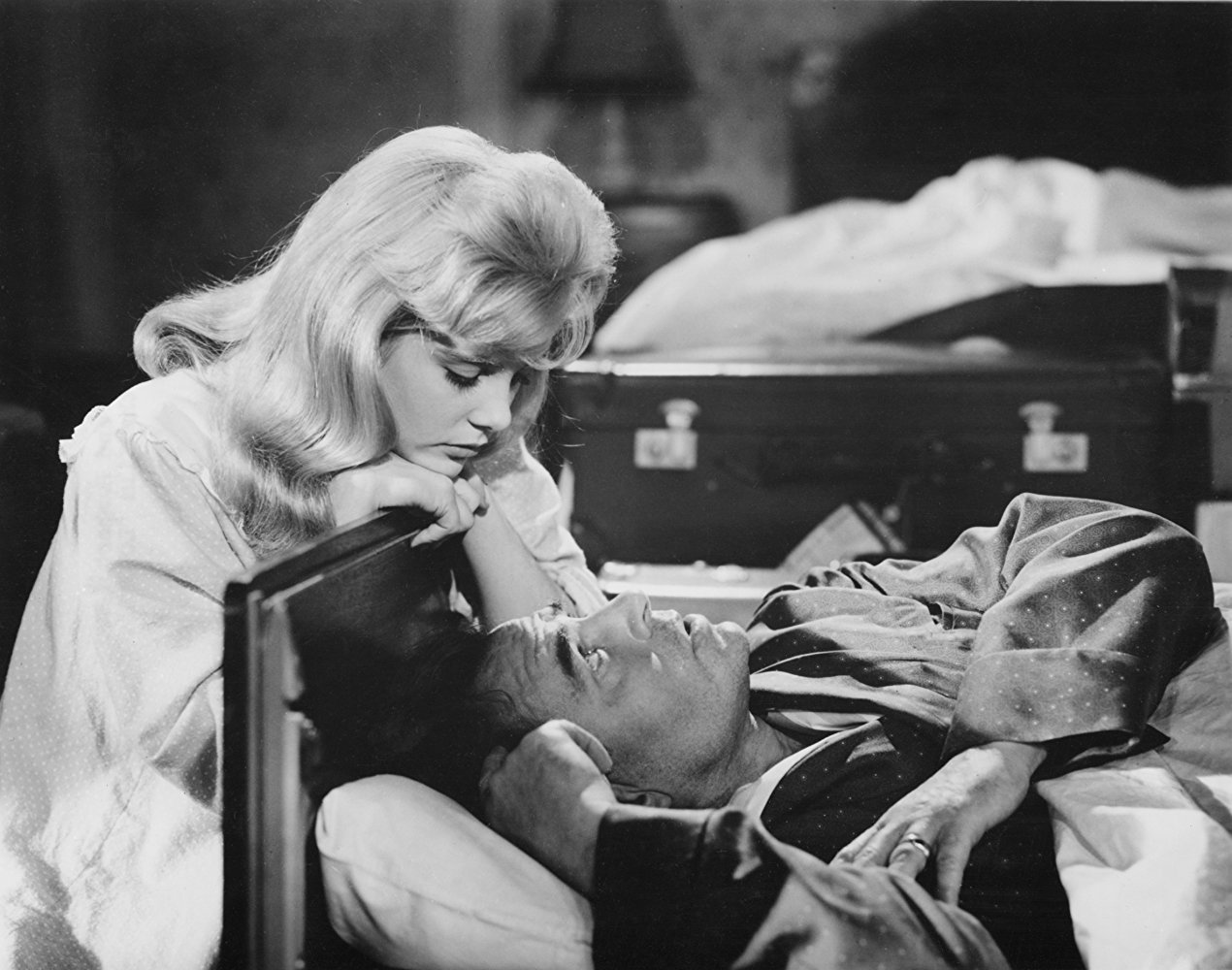Summary
A middle-aged man marries a widow to be closer to her young daughter.
My Thoughts
As I sit down to write this introduction I have not yet watched Stanley Kubrick’s “Lolita” (though as soon as I finish this introduction I will start it). This is a movie I’ve sort of put off watching for a while, but probably not for the reason you’d think. I read Vladimir Nabokov’s Lolita a few years ago and found it absolutely spellbinding. It’s a literary masterpiece and has some of the most poetic and meaningful prose I’ve ever read. After I read it a first time, I loved it so much that I bought it on audible so I could have Jeremy Irons read me Nabokov’s prose while I walked my dog. The opening lines never fail to give me chills:
Lolita, light of my life, fire of my loins. My sin, my soul. Lo-lee-ta: the tip of the tongue taking a trip of three steps down the palate to tap, at three, on the teeth. Lo. Lee. Ta. She was Lo, plain Lo, in the morning, standing four feet ten in one sock. She was Lola in slacks. She was Dolly at school. She was Delores on the dotted line. But in my arms she was always Lolita.
The story is both terrifying and tragic. Terrifying in that Humbert Humbert is such a wonderfully poetic and convincing narrator that at times I found myself believing his sides of the story and sympathizing with him. But at the same time we see what he is doing to poor, innocent Lolita and want nothing more than to see him locked away forever. Nabokov’s prose made me weep, and the feeling I get even now by reading some of those lines makes me want to read more by the man. When I finished the book I thought to myself that nothing could ever live up to what Nabokov had written, so why should I even try to see the film versions? The story of Lolita is perfectly fine left on pages, thought I, and so I just assumed I’d never see this film.
Whelp, now we’re doing a Kubrick series, so I guess this gives me an excuse to watch it. I was slightly surprised when I jumped on IMDb to find that Nabokov himself wrote the screenplay for this, so that gives me a touch more hope. I suppose if anyone can bring this novel to life on the screen, Kubrick and Nabokov would be the ones.
Here we go.
"He broke my heart. You merely broke my life."
Having watched the film yesterday evening and taking the night to think over what I’d seen, I’m happy to report that the film far surpassed my expectations, though, as I expected, it still pales in comparison to Nabokov’s masterpiece. This version of Lolita is about as perfect as I’d even want to see put on screen, because while it is rather accurate when compared to the book, it is also subtle enough that the content isn’t overwhelmingly disturbing. I think the two people we have to thank most for that are Kubrick and Nabokov, both of whom are known for their subtlety in their work. The ‘encounters’ Lolita and Humbert share are always off screen, and their relationship is only implied (though very heavily). I’m guessing this was a choice made by the writer and director as a team, and I’m glad they approached the film this way; otherwise this movie could’ve been impossible to watch. As it is, this is a very good movie, thought it’s one I’d have a hard time recommending to most people. I, personally, feel like I came at this from a biased position (I love Nabokov’s writing and this story in particular, and I love Kubrick’s directing as well- even though I was apprehensive about watching this movie, I was bound to end up enjoying it at least a little bit). There are a few things that are changed from book to screen, as there always are. Quilty (Peter Sellers, “Dr. Strangelove: or How I Learned to Stop Worrying and Love the Bomb”) is introduced to us far earlier, and his character is far more present in Lolita’s life, even from the beginning of the film. In fact, the opening scene of this movie would be the final scene sequentially. We start with Quilty’s murder, then flash back to see what lead Humbert (James Mason, “North By Northwest”) to kill. Besides rearranging the first scene, most of the book plays out relatively closely to the film; all of the important beats are there. As far as story structure, character motivations, revelations and ironies, this story is incredibly masterful; there’s a reason this novel is seen on almost every ‘Best Books’ list- because it’s amazing. Nabokov is able to really bring his characters to screen without sacrificing their depth, but still keeping the content relatively tame.
Some of the best direction from Kubrick comes with his incredibly subtle hints at things to come throughout the film. From the first scene, where Hum kills Quilty, we see some very obvious imagery as Hum shoots through a portrait of a young woman to kill Quilty (his shooting through the painting of this woman representing his reasoning for shooting Quilty). But even before Lo and Hum start courting, there are a few low-key sexual references that feel a little risqué at the beginning of the film. There are plenty of ways that Kubrick hints at how Hum feels towards younger girls too. The first time we meet Lolita (Sue Lyon, “The Night of the Iguana”) she’s lounging in the garden, surrounded by beauty, wearing a hat that’s haloed with white fuzz, making her look angelic. The expression on Mason’s face is just wonderful, for we know exactly what his devious mind is thinking as he lays eyes on ‘the nymphet’ for the first time. But Kubrick’s subtlety permeates throughout this film- when Hum and Charlotte (Shelley Winters, “The Night of the Hunter”) chaperone the school dance and Charlotte gives Lo permission to stay the night at her friends, it’s the exact moment Charlotte takes Hum’s slice of cake. It’s wonderfully poetic. There are lots of moments of humor that Kubrick and Nabokov worked in as well. Almost any time Charlotte tries to seduce Humbert or make advances towards him turn out to be incredibly awkward, and slightly funny- especially when Charlotte tries to get Humbert to dance after the school dance. Another scene that comes to mind is the scene when Humbert and the bellman try to unfold a cot in a hotel bedroom and it takes a good minute and a half to figure it out. The scene is uncomfortably awkward and it comes out of nowhere, so it makes it incredibly jarring and funny.
The acting in this film is absolutely wonderful. James Mason as Humbert is amazing. I have a feeling this would be one of the most difficult roles Mason ever had to play, and he pulls it off incredibly. From the first time I watched Hum and Charlotte interact, and Charlotte started to banter wittily with him while he showed his subtle distaste for her was just hysterical. Mason has a way of bringing to life Humbert’s wry sense of humor, and overall sense of superiority, while still keeping him grounded and, at times, childish. Humbert’s psyche is a strange one. In the novel there are times towards the end of the book when he comes off as psychopathic (I suppose he needlessly murders Quilty, so maybe he is a bit of a psychopath). This movie does a great job of showing Mason go through a gradual descent into unstableness, until he finally arrives at Quilty’s mansion. Shelley Winters does a wonderful job as Charlotte. If you think about it, none of the characters in this story are mentally sound, but Charlotte’s character is the one that seems most unstable from the beginning of the film. Charlotte can come across a bit overbearing (from Humbert’s perspective), and her advances come across as needy and heavy handed. As far as her portrayal, however, I think Winters really brings Charlotte to life. And of course, there’s our titular character herself, the nymphet, Lolita. It’s rather strange to think that Sue Lyon was probably only fifteen or sixteen when they filmed this movie (Lyon was born in 1946 and this film was released in 1962). Lyon does a wonderful job of conveying her childishness while also displaying growth towards an adult. When we meet Lo, she’s at a stage in her life that’s very transitional- she’s growing up- experiencing hormonal changes- experimenting with boys for the first time- but at the same time she’s still very young, and all these changes can be frightening to her. Add on top of that, the unwanted advances of an older man; it’s no wonder that Lo is confused, and her character’s reactions sometimes seem childishly illogical.
Verdict:
I must admit I’m surprised by how much I enjoyed this film. It was a book that I thought would be impossible to bring to screen (even the tagline for this film was “How’d they ever make a movie of Lolita?”), but Kubrick and Nabokov have done it in a way that is both classy and disturbing, thought provoking and humorous. While I can’t say this film measures up to the brilliance of the book itself, it’s certainly a worthy adaptation. For some people, I’m sure the themes behind this film could be very hard to stomach, and I absolutely understand why; this isn’t a film I would recommend to everyone. Know your limits as far as content goes. This film is tame as far as what it shows on screen, but what it implies is grotesque; that’s the point. This is a portrait of a man who is incredibly broken and twisted; it’s sad to watch as he destroys his own life, and that of the girl he professes to love.
Review Written By:









